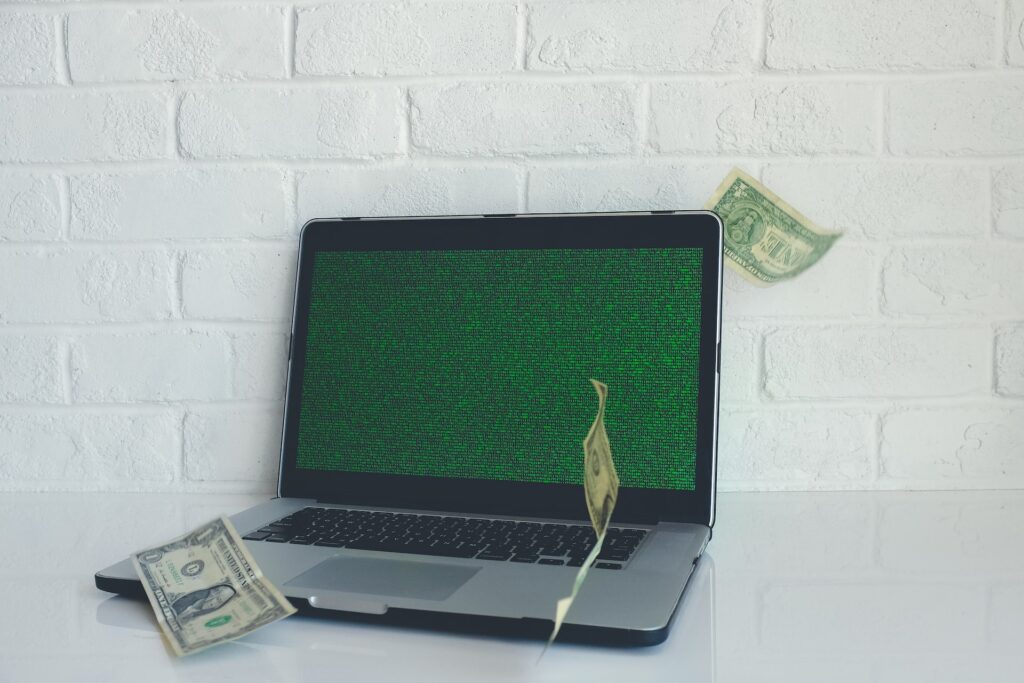A Beginner’s Guide to Rental Property Bookkeeping

Managing rental properties comes with a unique set of challenges, and solid bookkeeping is key to staying organized and maximizing your returns. Proper rental property bookkeeping helps you track income, expenses, and maintain accurate records, all of which are necessary for making informed decisions about your investments.
This guide introduces the essential steps you need to keep your books in order, including how to track and categorize your financial activities and what records to save for tax purposes. Whether you’re new to the rental business or looking for ways to improve your current process, you’ll find practical tips to help streamline your approach and avoid common mistakes.
Key Takeaways
- Accurate bookkeeping keeps your rental property finances organized.
- Regular recordkeeping is important for managing taxes and expenses.
- Streamlining your process helps prevent common bookkeeping errors.
The Importance of Rental Property Bookkeeping
Bookkeeping is fundamental for anyone managing rental properties. By maintaining accurate records, you ensure rent payments are tracked, late fees are noted, and all expenses are transparent. With organized records, you can easily monitor when rent is due, track payment histories, and identify patterns in tenant behavior.
Advantages for landlords include:
- Improved organization for tracking repairs and invoices
- Increased tax efficiency by documenting deductible expenses
- Better decision-making using clear financial data
A consistent routine helps you analyze your investments and prepare for tax season. Strong bookkeeping reveals which costs are necessary and which can be reduced, supporting profit maximization. Learn more about the benefits of good bookkeeping practices for rental property owners.
How To Keep Track of Rental Income and Expenses
You can use a dedicated rental income tracking software or a simple spreadsheet to organize your financial data. Software options typically streamline categorizing expenses, generating financial statements, and preparing for tax season. If you prefer, you can download a free rental income and expense worksheet to manage your finances in Excel format, which offers flexible customization to fit your needs.
Spreadsheets are a practical option for tracking revenue and expenses. Set up columns for categories such as rent received, repairs, utilities, property management, and insurance. Add rows for each transaction and use formulas to calculate totals. Downloadable templates, like the one from Zillow Rental Manager, can help get you started.
Key steps for tracking:
- Enter rental income and all expenses regularly
- Organize receipts and supporting documents
- Reconcile your records monthly
A thorough approach ensures accuracy, saves time when filing taxes, and helps monitor the performance of your rental property.
How To Categorize Rental Expenses
When managing rental properties, it’s important to organize your expenses using clear categories. Using Schedule E helps you report items such as mortgage interest, repairs, insurance, advertising, and property management fees directly related to your rentals.
Create and maintain a journal or ledger where each expense is listed under the correct category, such as cleaning, maintenance, commissions, or HOA fees. Accurate categorization aids in preparing financial statements like your balance sheet, income statement, and cash flow statement.
Choose an accounting method—either cash or accrual—and stick to it to ensure consistency. Tracking expenses, including security deposits and property management accounting costs, lead to better expense management throughout the year. Regularly reviewing categorized expenses makes it easier to identify deductible items and streamline your tax preparation process.
What Records To Keep for Tax Purposes
You should maintain thorough records for your rental property to support your tax deductions and document each financial transaction. Detailed records also help you during tax filing and protect you if the IRS questions your tax return. Both paper records and electronic records are acceptable, as long as they are clear, legible, and organized. Supporting documents include receipts, leases, invoices, utility bills, and canceled checks.
Key records you need to keep:
- Lease agreements and tenancy contracts
- Records of rent payments and security deposits
- Expense receipts (repairs, maintenance, supplies)
- Utility bills, insurance, and property tax statements
- Evidence of mortgage interest payments
- Records of substantial purchases, such as appliances and furniture
- Documentation of asset depreciation and capital improvements
| Record Type | Examples | Purpose |
|---|---|---|
| Income | Lease copies, deposit slips, rent receipts | Verifies rental income |
| Expenses | Repair invoices, utility bills, insurance statements | Supports deductible costs |
| Asset Purchases | Appliance receipts, equipment invoices | Documents capital expenditure |
| Depreciation | Depreciation schedules, improvement receipts | Validates depreciation claims |
You may store these documents in paper files or use digital recordkeeping, as digital images of documents are acceptable for IRS audits. Always keep your records for at least three years after filing your tax return. For more information on efficient recordkeeping, review practical tips for recording rental property income and organizing rental business records.
How Often To Reconcile Rental Accounts

Reconciling your rental accounts should be done monthly as part of your regular business routine. This practice helps you promptly spot inconsistencies and address any discrepancies before they cause larger problems or compliance issues. Consistent monthly reconciliations also make it much easier when preparing for year-end financial reports.
When you compare your accounting records to your bank statements, focus on the following steps:
- Carefully review each transaction to ensure both credits and debits match between your books and the bank.
- Verify the timing of payments, checking for any differences between when funds are recorded in your system versus when they appear on your statements.
- Check the amounts on both sides, confirming that income and expenses are recorded for the correct values.
Below is a simple table illustrating recommended reconciliation frequency:
| Task | Recommended Frequency |
|---|---|
| Reconciling rental accounts | Monthly |
| Logging reconciliations | Ongoing/As completed |
| Annual summary review | Year-end |
By maintaining a detailed logbook or spreadsheet of reconciliations, you can track patterns over time. This makes it easier to identify issues early such as irregular rent payment dates or recurring discrepancies.
Regular reconciliation is highlighted as a best practice in rental property accounting by industry experts. For a more in-depth overview, visit this website on rental property accounting.
Tips for Streamlining the Rental Bookkeeping Process

Managing rental property bookkeeping is more efficient when you use dedicated systems and tools. Adopting property management software or even widely recognized options like QuickBooks can help automate and organize your finances. Many landlords find it helpful to separate personal and rental accounts, simplifying the tracking of deposits, rent payments, and business expenses.
Key Tips:
- Track all income and expenses: Maintain clear records for every payment and charge related to your rentals. This includes rent, repairs, maintenance, and any other property-related expenses.
- Digitize paperwork: Go paperless by storing receipts, lease agreements, and legal documents in digital formats. This makes retrieval and review easier, saving you time during tax season.
- Organize with structured systems: Use spreadsheets, accounting software, or property management software to manage documents, track payments, and set reminders for upcoming bills.
- Consider a property management company: Outsourcing can be beneficial if you prefer not to handle accounting details yourself.
- Stay compliant: Keeping informed about landlord-tenant laws helps prevent mistakes and ensures you meet all legal requirements.
| Tip | Benefit |
|---|---|
| Separate accounts | Clearer bookkeeping |
| Use accounting software | Automated tracking & reporting |
| Go digital | Faster document access |
| Know the laws | Reduces risk of legal issues |
Regular reviews and good record-keeping make your rental business more manageable and less stressful.
Common Mistakes Landlords Make With Their Rental Property Bookkeeping
Landlords often encounter problems in rental property bookkeeping due to a few key missteps. Mixing personal and business finances is one of the most frequent errors. Using the same bank account for both types of expenses makes it hard to track income and deductions, especially when it comes to tax season. Maintaining a separate account for each property helps keep financial records clear and organized.
Another common issue is neglecting to record every expense. If you fail to keep receipts or detailed notes on costs like repairs, insurance, or advertising, you risk losing potential tax deductions. When you underreport expenses or miss entries, you could end up paying more taxes than necessary.
Recording rent payments inaccurately is also a frequent mistake. Without proper documentation of tenant payments, disputes can arise, and verifying income may become challenging. Here’s a quick reference table outlining typical errors:
| Mistake | Consequence |
|---|---|
| Combining personal and rental finances | Confusion during tax filing, inaccurate reporting |
| Missing expense records | Missed tax deductions, incomplete financial statements |
| Poor documentation of rent payments | Disputes with tenants, difficulties proving income |
| No regular financial reviews | Undetected errors, unresolved discrepancies |
| Not digitizing receipts | Lost documentation, less reliable record keeping |
Keeping detailed financial records, separating accounts, and promptly tracking all transactions are foundational practices for landlord success. By avoiding these common bookkeeping errors, you create a transparent, reliable system to manage your real estate investments.
Frequently Asked Questions

What are the essential components of a rental property bookkeeping template?
A rental property bookkeeping template should include income tracking, expense categories, bank reconciliation, and space for notes or descriptions. Essential columns often are:
- Date
- Description
- Income received
- Expense type/category
- Amount
- Payment method
- Balance
Organizing your banking details and regularly tracking expenses is recommended for effective accounting, as explained in the landlord’s guide to rental property accounting.
Can you provide an example of effective bookkeeping for a rental property?
Here is a simple example of how you might record transactions using a bookkeeping template:
| Date | Description | Category | Income ($) | Expense ($) | Notes |
|---|---|---|---|---|---|
| 2025-05-01 | Rent Payment | Rent Income | 1500 | May rent paid | |
| 2025-05-03 | Plumbing repair | Maintenance | 200 | Faucet replaced | |
| 2025-05-10 | Property tax | Taxes | 900 | 1st installment |
This method helps you keep clear records for tax season and financial analysis.
Which bookkeeping software is recommended for rental property management?
Property owners often use software such as QuickBooks, Stessa, Buildium, or AppFolio for rental property bookkeeping. Each offers tools for income and expense tracking, document storage, reporting, and integration with bank accounts. Reliable software can make it easier to keep records organized year-round.
How should I use Excel for rental property bookkeeping tasks?
Excel is suitable for creating custom templates, tracking monthly income and expenses, and generating summary reports. You can set up spreadsheets with:
- Tabs for each property
- Expense and income categories
- Automated calculations
- Charts for visual analysis
Templates can be tailored to your needs, and Excel is recommended for landlords who prefer more control over their records.
What checklist items should be included for rental property tax deductions?
When preparing for tax deductions, your bookkeeping should document the following checklist items:
- Mortgage interest
- Property taxes
- Repairs and maintenance
- Property management fees
- Utilities
- Insurance premiums
- Advertising costs
- Depreciation calculations
- Legal and professional fees
Tracking each category ensures you maximize deductions and remain compliant with IRS rules.
What are the IRS guidelines regarding rental property income and expenses?
The IRS requires all rental income to be reported on your tax return. Generally, you may deduct ordinary and necessary expenses related to your property, such as maintenance, taxes, mortgage interest, and insurance. You must keep thorough records and receipts to support claims. For detailed guidelines, review the IRS tips on rental real estate income, deductions, and recordkeeping.
Ready to turn your real estate investments into profit machines?
Get ready to build a thriving rental portfolio. Get instant access to professional property management guides and start implementing proven strategies!

Master the art of real estate investing with The Real Estate Property Management Guide: Premium Edition – your comprehensive roadmap to successful property management.
Whether you’re a novice investor or seasoned professional, this guide covers everything from selecting the right investment properties to tenant management and property marketing.
The author, Jeff Rohde writing as Jeffrey Roark, is a professional with over 25 years of real estate experience. This Premium Edition includes the valuable bonus book Investment Real Estate Analysis: A Case Study to help you identify hidden opportunities and evaluate properties like a professional.
Learn practical, actionable strategies for both residential and commercial properties, from single-family homes to office buildings and shopping centers.
Don’t just buy property – learn how to manage it successfully and maximize your investment potential.
Grab your copy now from your favorite bookseller:
- Amazon (Basic Edition, does not include Investment Real Estate Analysis: A Case Study)
- Books2Read for Apple, Barnes & Noble, Kobo, Scribed, and 8 more sellers with both eBook and paperback options available ((Premium Edition, includes Investment Real Estate Analysis: A Case Study)
- Payhip as a downloadable PDF (Premium Edition)
Ready to take your business to the next level?
- Subscribe to our newsletter
- Visit the learning center
- Learn more about our consulting services
